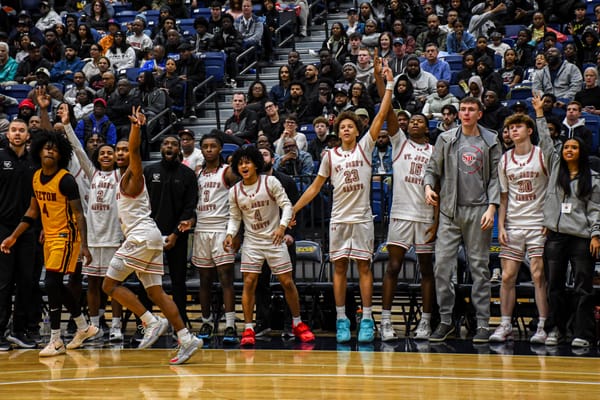Can Theaters Recover From COVID Setbacks?

One of the industries most affected by the pandemic is undoubtedly the film industry. My family used to visit the movie theater at least every other week, but 2020 has left us without that essential experience. In closing their doors to prevent the spread of COVID-19, or even continuing to operate in a limited function, theater chains have suffered immense losses: AMC and Cinemark reported over 90% revenue losses in 2020’s third quarter, for instance. Movie studios delayed release schedules en masse and films currently in production have faced interruptions, such as The Batman halting production when Robert Pattinson, the film’s star, caught COVID-19.
Nonetheless, the industry as a whole persists; Warner Bros. will be launching all of its new movies on HBO Max through 2021 regardless of the status of theaters, and movies released straight to streaming services haven’t fared as poorly as some might have thought they would given studios’ reluctance to try that before the pandemic. This presents an intriguing divide, however; the movie industry has found a way to recover while the theaters have not, proving to the industry that theaters are not a necessary function of their business model. Combined with the massive financial losses theaters have suffered already, it begs the question of whether theaters will ever be able to come back in full force.
The first question to address is whether audiences like the experience of going to the theaters enough to resume seeing movies that way. As much as I always enjoyed a trip to the theaters, seeing if I could eat an entire large popcorn by myself and enjoying the film on a huge screen with excellent audio quality, it’s not for everyone. Theaters can be dirty as careless customers leave soda spills and popcorn bits lying around. Having to count on the audience to be as well-behaved as you are can be dicey. More and more advertisements stand between the time the ticket said the movie was going to start and the time it actually starts, making it take up more of your schedule than you might want it to. While watching movies in your own home lacks the benefits of theater quality screens, sound, and popcorn, for some the loss of those annoyances is a net positive. If studios make a push to force people back into theaters for big releases, some people would rather wait for it to come to a streaming service than deal with inconveniences they no longer feel are necessary for the experience.
Another convenience offered by streaming movies is that it’s cheaper for audiences. Disney controversially released its Mulan remake for an extra thirty dollars on top of the standard subscription cost for Disney+, and the reason for that certainly has to do with profit. You might be thinking that thirty dollars is quite a lot more than an average movie ticket will cost you, but Disney wasn’t trying to make up the price of just one ticket; they were trying to account for at least three or four of them. Mulan, like the animated original, was aimed at families, and a whole family of four being able to watch it for the cost of a single month of Disney+ would likely result in huge losses for Disney. Earlier, I said consumers might resist studios herding them back into theaters, but this is a big incentive for them not to care about that. Selling individual tickets for every person every time they want to see the movie just makes a lot more money for the studios than adding it to the services they’re already paying for does. In this way, studios may decide audiences won’t have a choice in how they watch the movie as long as they stand to make money anyway. Only time will tell whether enough people skip on theaters for this strategy not to be profitable, or if studios will even make the gamble.
A third variable to consider is the fact that the theaters certainly don’t want to go out of business. They’re going to try everything they can to recover after the pandemic, and I have no doubts that they’ll be up and running at full capacity as soon as it’s safe. However, the strategies they’ll employ to get audiences back inside may make all the difference. Of course, nothing at all could change about the experience; same inconvenient ads, same annoying concessions prices, et cetera. Depending on how desperate (and smart) theater chains are, though, things could shift either way. They could run less ads and lower their prices, knowingly taking less profit than they used to in order to sweeten the deal for consumers, or they could ramp those same things up to an even worse degree than before to squeeze every last penny out of those who persist in going to theaters. Personally, I think the first strategy would work much better; theaters are on the defensive right now, needing to convince people that it’s a worthwhile endeavor to actually patronize them. Making it a less affordable and convenient experience doesn’t make that case well, even if it will bring in more profit per customer. That sort of strategy only works on a captive audience, which theaters most certainly don’t have as of now. By making the theater experience easier for everyone, theaters stand to shift audience opinion back in their favor and stay financially afloat more reliably.
Taking into account the many variables I’ve outlined, I predict that theaters will be coming back. Going to a movie with your friends is something that just isn’t the same at home or over the Internet. However, I think the challenges theaters have endured until now will have lasting effects. Smaller, independent theaters are less likely to be able to endure it all, especially since they probably haven’t had as much profit stored for an emergency like this and bigger theaters may be pricing tickets more competitively. Also, the purpose of theaters may have to change. The possibility that they never return to being the only place to see the newest movies as soon as they’re out could lead to theaters using the unique moviegoing experience they offer as a selling point instead. Older classics could occupy more screens, where the incentive to buy tickets becomes “see it on the big screen” instead of “see it without having to wait six months.” Whatever ends up happening, though, I think theaters and streaming services will end up coexisting once the pandemic finally ends.




